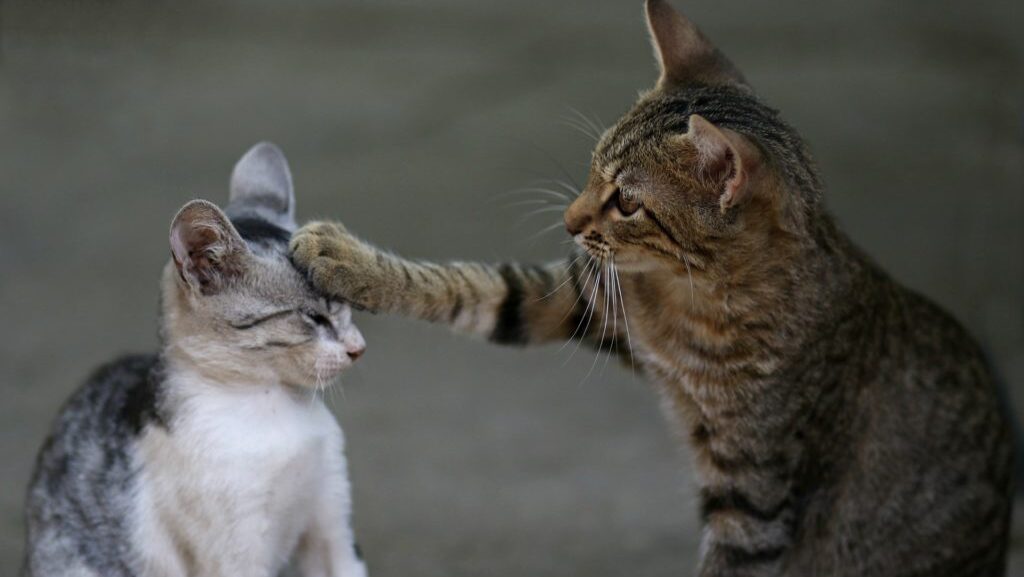We recently announced a new feature at A Shift of Mind called the Question of the Week. The following is my response to Sherin, who wrote:
“You have said a lot to help people rethink how to live. Since we die a little every day, can you comment on what might happen when we die. If there is nothing or something then that must impact on how we live?”
A wonderful question, Sherin.
Interested in bespoke marriage and relationship counseling from Mel Schwartz? Reach out!
Our beliefs about death enormously impact our lives.
People who hold no beliefs about what happens after death, or equate death with the annihilation of their being, experience life as a countdown toward the end. This sets up an existential despair from which it is very difficult to experience a sense of meaning or purpose in our lives. So, we resign ourselves to instant gratification, consumerism, greed and a host of addictive behaviors. As importantly, we are living in fear of death or in denial of that fear — setting up great stress and anxiety. Many of the psychological and emotional disorders that people experience are underscored by their fear of death.
What we think happens when we die is inextricably woven into how we live. From Tibetan and Buddhist perspectives, life cannot be well lived unless one is prepared for death. I have personally given much thought to these questions and share the following simply as some personal considerations that I’m currently contemplating.
I use the word spiritual as distinct from religious. For me spirituality refers to my perceiving how the universe operates and how I participate in this unfolding process. From my vantage the universe is both incomprehensibly remarkable and unfathomably inseparable. It is perpetually evolving and we are in no way separate from this process. As such, my life takes on a creative potential that feels boundless.
From this worldview I derive not only meaning and purpose but also exhilaration and insight. Spirituality does not preclude religion, but is more expansive as it doesn’t limit one to a particular religious identification. Spirituality may be seen as an umbrella for many religious disciplines but is in no way limited to their particular tenets.
Although I consider myself to be quite spiritual, I am also an ardent believer in empirical science. In fact, my following of the emerging sciences inform and buoy my spiritual understanding. The remarkable discoveries of these sciences paint a new landscape of reality that is both breathtaking and awe-inspiring. Yet, as a culture we still tend to adhere to old scientific and medical models, notwithstanding ample evidence that suggests our notions about death may no longer be empirically sound.
When new phenomena or information appear that do not fit into our model of reality we tend to designate as an anomaly. An anomaly is something that is inconsistent with our framework of belief. So we dismiss it or treat it in a fringe manner as though it’s simply a weird occurrence. Essentially, we are marginalizing the anomaly. This is done in a defensive manner so as to protect our beliefs, with which we have become so invested.
For example, under the dominant materialist construct under which most of us operate, it is generally believed that consciousness — or life — requires heartbeat and brain activity. In other words, consciousness is dependent upon an alive and functioning biological system. Along comes an enormous anomaly. Countless cases of near death experience from all parts of the planet inform us that consciousness is apparently not dependent upon what we call life. With the absence of a heartbeat or any brain activity, a state that we refer to as “dead,” these individuals accurately report conversations they heard amongst doctors, friends and relatives, well after they were purportedly “dead.” Their consciousness apparently survived the death of their physical body. This ought to provoke an intense reconsideration of death.
Furthermore, another anomaly occurs when they return to life and they are not brain dead from a lack of oxygen as traditional medicine informs us they should be. Whether we relegate these incidents to the category of weird or we suspend our beliefs and investigate them more vigorously is essential in our understanding of death.
Anomalies should provoke us to reconsider our beliefs, no matter how outrageous that may at first appear to be. If the weather forecast for a particular day is sunny and warm, and we find the day to be chilly and rainy, we don’t cling to the correctness of the forecast; we acknowledge that the forecast was incorrect since our observations reveal an inconsistency. Yet, in our inveterate scientific and social beliefs, when we encounter anomaly, the inclination is to dismiss it rather than question the validity of the underlying assumptions. If what we assume are the conditions for death aren’t in many cases wiping out consciousness, might we rethink the entire premise?
There is also additional research pointing to the fact that consciousness isn’t located or limited to the brain or the body for that matter. Information can readily be passed from one person to another without any causal explanation. This phenomena is known as psi energy and many highly researched studies of ESP also confirm that consciousness is not necessarily contained within the individual person. These studies are looking at what is called non-local consciousness. Intelligent awareness that is not limited to our physical being. How remarkable! If this is so, and it appears to be, then what do we mean by death? If intelligence doesn’t require a living body — as in near death experiences — and is not limited to a living body either, then we might very well reconsider what we mean by death.
Might it be that what we call death may well be a misnomer. To simply equate the death of my physical being with the stamping out of my soulful awareness and my intelligent consciousness may well be the largest error in thinking imaginable. I consider that my body and brain are the temporary location of my being, but in no way the equivalent of my life source. That said, I’m not at all certain about the presumed finality of death.





Hi Mel,
Well, I was at the library and tried to listen to your presentation through the headphones, and the sound button would not work.
Anyhow, read your stuff. Death can be tough to deal with for sure. Given the choice,…I’d take sudden death to the long drawn out way to die.
Chronic illness can be tricky to deal with unless we have the proper coping techniques in place
My perception of death has evolved over time. As I mature I experience the passing into another existence as something anticipated, like a coming celebration. I view my past as an acknowledgement of the many things I have accomplished (my own judgment) and I am satisfied. My passing through this world may be unremarked by many and yet I have left my mark on the world. I am satisfied. It has been good. I accept that individuals have out of body experiences and made other connections based on their retelling of these experiences. To them these experiences are real. I can accept that for them these experiences are real. We live in a world of which we do not know everything and possibly everything is unknowable. We accept many things as real that cannot be proven, as yet.
Thanks for sharing your most intimate thoughts Charles. I appreciate the manner in which your thinking about death evolves. Perhaps more to come.
Hi Mel,
My younger brother’s death last year from a combination of mental illness, alcoholism, cancer, impacted me in the sense that my remembrance/eulogy of him focused on some of the beauty and the sense of humor that we shared in spite of the horrendous difficulties that he suffered. It was in those places that I felt a spiritual sense of what I can only call God’s grace. I didn’t want to hear that because his life was so difficult, he was owed a Disney World afterlife where he was in a “better place.” That brings no comfort to me. What brought comfort to me, was the sense of a tangible grace that I could identify; such as the sense of humor that fueled the best parts of my brother and my ancestors. That grace was there and then, and it’s also here and now. I don’t know if we are owed a final celebration.But I know that there are a lot of “celebrations” in the strangest circumstances, that we overlook in our “chop wood fetch water” lives. You’ve raised a very interesting topic.
Hi Don,
Your ability to discern and appreciate your brother’s gifts amidst his hardship and suffering are a wonderful quality.
Don, I love that expression ‘chop wood fetch water’ lives. That is extremely ‘true’.
Charles, I appreciate your sharing on this matter. At present, I am a Geriatric Mental Health Counselor in the Seattle area, but in the past was a priest for 25 yrs., with 18 of those being as a hospital chaplain. I have been and am still working with many individuals and their families in the process of aging and dying, have even met some who shared their out of body experiences, and I find your thoughts and insights to ring very true. In that process and journey, I learned, as you have shared, that spirituality and religion aren’t necessarily one and the same: one can be spiritual without being part of a “religion” and espousing a set of beliefs. Some find more of a sense of spirituality going out into nature than in a church, synagogue or mosque.
Robert, I much agree with your thoughts regarding the differences between spirituality and religion. One need not preclude the other, but spirituality is certainly far more expansive.
Over the years I have seen number of my loved ones die. I have had a glimmer of a greater consciousness and a sense of the divine. Letting go of fear, for me, seems to be the way to have a greater sense of peace about the process. I feel much closer to all my loved ones both living and dead if I feel love rather than fear or loss. It lifts me to higher level of vibrational energy and a greater awareness of the beauty that exists all around us. For me what many refer to as God is Love and what is referred to as the devil, is fear. When feeling down or fearful I hum “I am happy, saved and loved” or listen to the song “love is all around us” Many thanks Mel for a fantastic and well written article, another amazing and erudite piece of work.
Hi Val,
I really appreciate your description of love and fear. Your illumination of your experience of death is most compelling. Thanks so much for sharing.